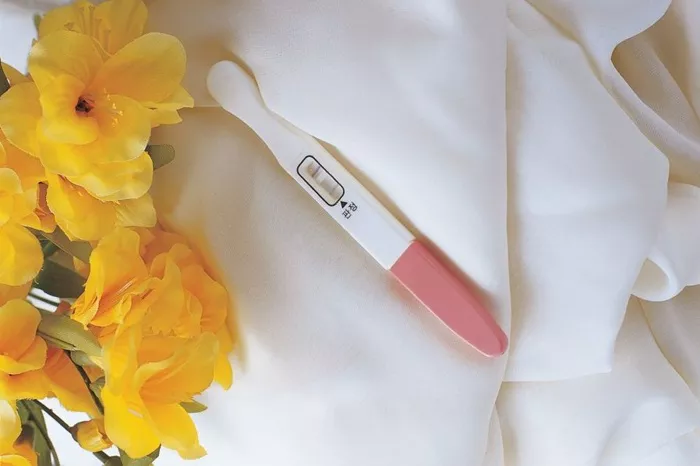Pregnancy is an exciting and anxious time. Women often want to know as soon as possible if they are pregnant. Early detection can help in planning and managing pregnancy better. Various pregnancy tests are available, and some can detect pregnancy earlier than others. This article will guide you on the earliest pregnancy tests, how they work, and which one might be the best for you.
How Pregnancy Tests Work
Pregnancy tests detect the hormone hCG (human chorionic gonadotropin). This hormone is produced after a fertilized egg attaches to the uterine lining. hCG levels increase rapidly in the early stages of pregnancy. Pregnancy tests can be done using urine or blood samples.
Urine Pregnancy Tests
Urine pregnancy tests are the most common. They are easy to use and available over-the-counter. You can take these tests at home. They detect hCG in your urine. Here are some common types of urine pregnancy tests:
Strip Tests:
These are the simplest form. You dip a strip into a cup of urine. The strip will change color if hCG is present.
Midstream Tests:
These are more convenient. You urinate directly onto the test stick. The result appears on a small window on the stick.
Digital Tests:
These are more advanced. They display the result on a digital screen. Some even estimate how many weeks you are pregnant.
Blood Pregnancy Tests
Blood tests are more sensitive than urine tests. They can detect lower levels of hCG. You need to visit a doctor or a clinic for these tests. There are two types of blood pregnancy tests:
Qualitative hCG Test:
This test simply checks if hCG is present in your blood. It gives a yes or no answer.
Quantitative hCG Test:
This test measures the exact amount of hCG in your blood. It can help determine the age of the fetus and check for any pregnancy complications.
Earliest Detection Pregnancy Tests
Some pregnancy tests can detect pregnancy earlier than others. These tests are more sensitive and can detect lower levels of hCG. Here are some of the earliest detection pregnancy tests available:
First Response Early Result Pregnancy Test:
This is one of the most sensitive tests. It can detect hCG levels as low as 6.3 mIU/mL. You can take this test as early as six days before your missed period.
Clearblue Early Detection Pregnancy Test:
This test can detect hCG levels as low as 10 mIU/mL. You can take it five days before your missed period. It also provides a digital readout.
E.P.T. Early Pregnancy Test:
This test can detect pregnancy four days before your missed period. It has a sensitivity of 25 mIU/mL.
Accu-Clear Early Pregnancy Test:
This test can be taken four days before your missed period. It detects hCG levels of 25 mIU/mL.
Factors Affecting Test Accuracy
Several factors can affect the accuracy of pregnancy tests. It’s important to consider these factors to get the most accurate result:
Timing:
Testing too early can result in a false negative. hCG levels may not be high enough to detect yet.
Urine Concentration:
First-morning urine has the highest concentration of hCG. Testing later in the day might dilute the hormone.
Test Sensitivity:
Different tests have different sensitivities. More sensitive tests can detect lower levels of hCG.
Improper Use:
Not following instructions can lead to inaccurate results. Always read and follow the test instructions carefully.
SEE ALSO: Can Early Detection Pregnancy Tests Be Wrong?
When to Take a Pregnancy Test
The best time to take a pregnancy test is after you miss your period. However, if you are eager to know, you can take an early detection test. Here is a general guideline:
Missed Period:
Take the test on the first day of your missed period for the most accurate result.
Early Detection:
If you want to test early, choose a highly sensitive test. You can take it up to six days before your missed period.
Understanding False Results
False results can happen. It’s important to understand why and what to do next.
False Negative:
This can occur if you test too early. Wait a few days and test again. Use first-morning urine for a more accurate result.
False Positive:
Rare, but possible. It can happen due to certain medications, medical conditions, or a recent pregnancy. If you get a positive result, follow up with your doctor for confirmation.
Next Steps After a Positive Test
If you get a positive result, it’s time to take the next steps:
Confirm with a Doctor:
Schedule an appointment with your doctor. They will confirm the pregnancy with a blood test or ultrasound.
Start Prenatal Care:
Begin taking prenatal vitamins and follow your doctor’s advice for a healthy pregnancy.
Lifestyle Changes:
Avoid alcohol, tobacco, and certain medications. Eat a balanced diet and stay hydrated.
Next Steps After a Negative Test
If you get a negative result and still suspect you are pregnant:
Wait and Test Again:
Wait a few days and test again. Hormone levels might not be high enough yet.
Consult a Doctor:
If you continue to miss your period and get negative results, consult your doctor. They can perform more accurate tests and determine the cause.
Conclusion
Choosing the right pregnancy test and knowing when to take it can help you detect pregnancy early. Early detection allows you to start prenatal care sooner and ensure a healthy pregnancy. Remember to follow the test instructions carefully and consult your doctor for confirmation and further guidance.


